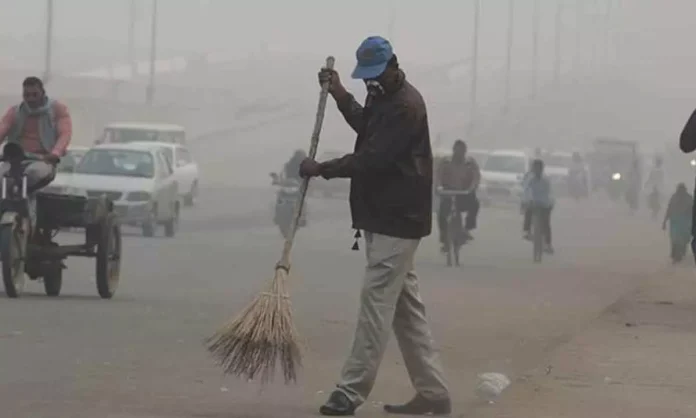New Delhi: With air pollution in the National Capital reaching alarming levels, the Safai Karmachari Andolan, a collective representing sanitation workers, has called on governments to take immediate steps to protect the health, safety, and dignity of sanitation workers. The Air Quality Index (AQI) has breached the “Severe Plus” category, exceeding 480, posing a grave health hazard for all, especially vulnerable workers.
Bezwada Wilson, National Convenor of the Andolan, highlighted the double jeopardy faced by safai karmacharis who already risk their lives in toxic sewer lines and septic tanks. Now, the extreme levels of air pollution threaten their health even above ground. “An AQI above 400 is classified as hazardous, adversely impacting healthy individuals and posing life-threatening risks for those with pre-existing conditions. Safai karmacharis, already burdened by respiratory and gastrointestinal vulnerabilities due to their work, are now exposed to even greater health risks,” Wilson explained.
He also pointed out the specific challenges faced by women workers who are menstruating, pregnant, lactating, anaemic, or menopausal, as they continue to toil outdoors in hazardous conditions.
While schools have been shut, traffic regulated, and government offices instructed to allow 50% of employees to work from home, sanitation workers remain excluded from these protective measures.
Demands of Safai Karmachari Andolan:
- Explicit provisions must be made to regulate the working conditions of safai karmacharis, including reduced, flexible, and alternate work schedules during the air pollution crisis.
- Governments must bear all medical expenses for safai karmacharis to address the health impacts of hazardous air pollution.
- Safai karmacharis must be entitled to paid sick leave until they recover and are fit to resume work.
- Regular health screenings must be conducted to ensure that workers are fit for duty. If deemed unfit, they should receive full medical support, wages, and assistance until recovery.
Wilson further noted that safai karmacharis remain victims of systemic caste-based inequalities and the stigma of “pollution,” perpetuating their marginalisation. “Now, this visible air pollution has made them the worst affected yet again,” he said, calling for immediate action to ensure their safety and dignity.
This call for action serves as a reminder of the disproportionate burden borne by sanitation workers during environmental and public health crises.




